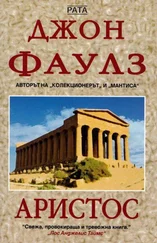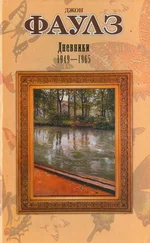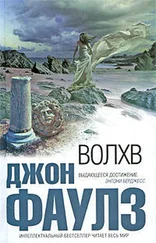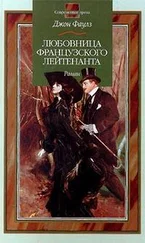Джон Фаулз - The Tree
Здесь есть возможность читать онлайн «Джон Фаулз - The Tree» весь текст электронной книги совершенно бесплатно (целиком полную версию без сокращений). В некоторых случаях можно слушать аудио, скачать через торрент в формате fb2 и присутствует краткое содержание. Жанр: Современная проза, на английском языке. Описание произведения, (предисловие) а так же отзывы посетителей доступны на портале библиотеки ЛибКат.
- Название:The Tree
- Автор:
- Жанр:
- Год:неизвестен
- ISBN:нет данных
- Рейтинг книги:5 / 5. Голосов: 1
-
Избранное:Добавить в избранное
- Отзывы:
-
Ваша оценка:
- 100
- 1
- 2
- 3
- 4
- 5
The Tree: краткое содержание, описание и аннотация
Предлагаем к чтению аннотацию, описание, краткое содержание или предисловие (зависит от того, что написал сам автор книги «The Tree»). Если вы не нашли необходимую информацию о книге — напишите в комментариях, мы постараемся отыскать её.
The Tree — читать онлайн бесплатно полную книгу (весь текст) целиком
Ниже представлен текст книги, разбитый по страницам. Система сохранения места последней прочитанной страницы, позволяет с удобством читать онлайн бесплатно книгу «The Tree», без необходимости каждый раз заново искать на чём Вы остановились. Поставьте закладку, и сможете в любой момент перейти на страницу, на которой закончили чтение.
Интервал:
Закладка:
I see little hope of any recognition of this until we accept three things about nature. One is that knowing it fully is an art as well as a science. The second is that the heart of this art lies in our own personal nature and its relationship to other nature; never in nature as a collection of 'things’ outside us. The last is that this kind of knowledge, or relationship, is not reproducible by any other means — by painting, by photography, by words, i by science itself. They may encourage, foster and help induce the art of the relationship; but they cannot reproduce it, any more than a painting can reproduce a symphony, or the reverse. Ultimately they can only serve as an inferior substitute, especially if we use them, as some people use sexual relationships, merely to flatter and justify ourselves.
There is a deeper wickedness still in Voltaire’s unregenerate animal. It won't be owned, or more precisely, it will not be disanimated, unsouled, by the manner in which we try to own it. When it is owned, it disappears. Perhaps nowhere is our human mania for possessing, our delusion that what is owned cannot have a soul of its own, more harmful to us. This disanimation justified all the horrors of the African slave trade. If the black man is so stupid that he can be enslaved, he cannot have the soul of a white man, he must be mere animal. We have yet to cross the threshold of emancipating mere animals; but we should not forget what began the emancipation of the slaves in Britain and America. It was not science or scientific reason, but religious conscience and fellow-feeling.
Unlike white sharks, trees do not even possess the ability to defend themselves when attacked; what arms they sometimes have, like thorns, are static; and their size and immobility means they cannot hide. They are the most defenceless of creation in regard to man, universally placed by him below the level of animate feeling, and so the most prone to destruction. Their main evolutionary defence, as with many social animals, birds and fishes, lies in their innumerability, that is, in their capacity to reproduce — in which, for trees, longevity plays a major part. Perhaps it is this passive, patient nature of their system of self-preservation that has allowed man, despite his ancient fears of what they may harbour in terms of other creatures and the supernatural, to forgive them in one aspect, to see something that is also protective, maternal, even womb-like in their silent depths.
All through history trees have provided sanctuary and refuge for both the justly and the unjustly persecuted and hunted. In the wood I know best there is a dell, among beeches, at the foot of a chalk cliff. Not a person a month goes there now, since it is well away from any path. But three centuries ago it was crowded every Sunday, for it is where the Independents came, from miles around along the border of Devon and Dorset, to hold their forbidden services. There are freedoms in woods that our ancestors perhaps realized more fully than we do. I used this wood, and even this one particular dell, in The French Lieutenant's Woman , for scenes that it seemed to me, in a story of self-liberation, could have no other setting.
This is the main reason I see trees, the wood, as the best analogue of prose fiction. All novels are also, in some way, exercises in attaining freedom — even when, at an extreme, they deny the possibility of its existence. Some such process of retreat from the normal world — however much the theme and surface is to be of the normal world — is inherent in any act of artistic creation, let alone that specific kind of writing that deals in imaginary situations and characters. And a part of that retreat must always be into a ‘wild’, or ordinarily repressed and socially hidden, self: into a place always a complexity beyond daily reality, never fully comprehensible or explicable, always more potential than realized, yet where no one will ever penetrate as far as we have. It is our passage, our mystery alone, however miserable the account that is brought out for the world to see or hear or read at second-hand.
The artist’s experience here is only a special — unusually prolonged and self-conscious — case of the universal individual one. The return to the green chaos, the deep forest and refuge of the unconscious is a nightly phenomenon, and one that psychiatrists — and torturers — tell us is essential to the human mind. Without it, it disintegrates and goes mad. lf I cherish trees beyond all personal (and perhaps rather peculiar) need and liking of them, it is because of this, their natural correspondence with the greener, more mysterious processes of mind — and because they also seem to me the best, most revealing messengers to us from all nature, the nearest its heart.
No religion is the only religion, no church the true church, and natural religion, rooted in love of nature, is no exception. But in all the long-cultivated and economically exploited lands of the world our woodlands are the last fragments of comparatively unadulterated nature, and so the most accessible outward correlatives and providers of the relationship, the feeling, the knowledge that we are in danger of losing: the last green churches and chapels outside the walled civilization and culture we have made with our tools. And this is however far we may have fled, or evolved away from knowledge of, attachment to, interest in the wild, or use of its imagery to describe our more hidden selves and mental quirks.
To see woods and forests merely scientifically, economically, topographically or aesthetically — not to understand that their greatest utility lies not in the facts derivable from them, or in their timber and fruit, or their landscape charm, or their utility as subject-matter for the artist — proves the gathering speed with which we are retreating into outer space from all other life on this planet.
Of course there are scientists who are aware of this profoundest and most dangerous of all our alienations, and warn us of it, or who see hopes in a rational remedy, in more education and knowledge, in committee and legislation. I wish them well in all of that, but I am a pessimist; what science and 'reason’ caused, they cannot alone cure. As long as nature is seen as in some way outside us, frontiered and foreign, separate, it is lost both to us and in us, The two natures, private and public, human and non-human, cannot be divorced, any more than nature, or life itself, can ever be truly understood vicariously, solely through other people's eyes and knowledge. Neither art nor science, however great, however profound, can ultimately help.
I pray my pessimism is exaggerated, and we shall recover from this folly of resenting the fact that we are to all practical intents and purposes caged on our planet; of pretending that our life on it is a temporary inconvenience in a place we have outgrown, a boarding — house we shall soon be leaving, for whose other inhabitants and whose contents we need have neither respect nor concern. Scientists speak of biological processes recreated in the laboratory as being done in vitro, in glass, not in nature. The evolution of human mentality has put us all in vitro now, behind the glass wall of our own ingenuity.
There is a spiritual corollary to the way we are currently deforesting and denaturing our planet. In the end what we must most defoliate and deprive is ourselves. We might as soon start collecting up the world's poetry, every line and every copy, to burn it in a final pyre; and think we should lead richer and happier lives thereafter.
We Park by a solitary row of granite buildings. To the east and behind it is a small half-hidden valley with two tall silent chimneys and a dozen or so ruined stone sheds, scattered about a long meadow through which a stream runs. The valley is bowered, strangely in this most desolate of Southern English landscapes, by beech trees. Its ruins are now almost classical in their simplicity and seeming antiquity — and one is truly old, a medieval clapper bridge, huge slabs of rock spanning the little stream. But the rest were not designed, nor the beeches planted, to be picturesque. In Victorian times gunpowder for quarry-blasting was made and stored here. The stone sheds and chimneys were scattered, the trees introduced, the remote site itself picked, for purely safety reasons. Most contemporary visitors to Powder Mill Farm, on the southern fringe of the barren, treeless wastes of northern Dartmoor, are industrial archaeologists, summoned by this absurdly — in regard to its former use — Arcadian and bosky little valley behind. But we are here for something far more ancient and less usual still.
Читать дальшеИнтервал:
Закладка:
Похожие книги на «The Tree»
Представляем Вашему вниманию похожие книги на «The Tree» списком для выбора. Мы отобрали схожую по названию и смыслу литературу в надежде предоставить читателям больше вариантов отыскать новые, интересные, ещё непрочитанные произведения.
Обсуждение, отзывы о книге «The Tree» и просто собственные мнения читателей. Оставьте ваши комментарии, напишите, что Вы думаете о произведении, его смысле или главных героях. Укажите что конкретно понравилось, а что нет, и почему Вы так считаете.









![Джон Фаулз - Вылазка в действительность [антология]](/books/431648/dzhon-faulz-vylazka-v-dejstvitelnost-antologiya-thumb.webp)
![Джон Фаулз - Мантисса [litres]](/books/438194/dzhon-faulz-mantissa-litres-thumb.webp)